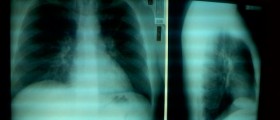Down syndrome is a chromosomal disorder manifesting through an extra chromosome on the 21st chromosome. This phenomenon leads to various mental and physical disorders. Therefore, a person with Down syndrome may manage to live a healthy and independent life or may need constant medical care and attention.
Reasons behind Down Syndrome
Normally, when humans are conceived, they receive 23 chromosomes from the mother and 23 from the father. Yet, in the case of Down syndrome, an anomaly is present in the genetic information which is transferred and the child ends up with 47 instead of 46 chromosomes. We are yet to find out why this takes place, as far as medicine is concerned.

Nevertheless, there are tests that can perceive Down syndrome at an early stage, allowing women to terminate the pregnancy, even though this step is often a matter of serious social dispute.
Women who are older than 30 have increased chances of giving birth to a baby with Down syndrome, the chances being one in every 400. Moreover, if a woman aging 40 or more gets pregnant, there are one in 60 chances that she will have a baby suffering from this condition.
The Test for Down Syndrome
The diagnostic tests for Down syndrome are conducted inside the womb. Therefore, in some cases, these tests may result in miscarriage. So, only women older than 35 are advised to undergo this kind of testing.
When a baby is 11 weeks old, doctors perform an ultrasound scan, checking the area behind the baby's neck, trying to find clear space in the folds of tissue. If they discover that this area is enlarged due to fluid build-up, the baby suffers from some type of chromosomal disorder. However, taking into consideration that this form of testing is accurate in about 80% of cases, further examinations and blood tests are required for a complete diagnosis.
Lifestyle of Children and People with Down Syndrome
Individuals with Down syndrome have certain physical and mental distinctive features. Therefore, they learn slower that other individuals and have problems with learning how to use the toilet, speak, eat or dress themselves. Of course, these people can learn all these things, but it takes them more time.
- We interacted with 34 DS children (22 males, 12 females, 2–16 years old) and their families. Food habits, medical conditions and treatments, degrees of development and physical activity, and anthropometric and laboratory data were recorded over 6 months and analyzed. A 3-day food diary and a 24-h recall food frequency questionnaire were administered.
- Twenty-nine (85%) children completed meals, only 11 (32%) received alternative food such as milk. Weaning regularly started in 25 (73%) of children.
- Preschool children introduced adequate calories and nutrients. School children and adolescents did not reach recommendations.
- All age groups, as the general pediatric population, excessively ate protein and saturated fat, and preferred bread, pasta, fruit juices, meat and cold cuts.
- Peculiarly, pulses and fish were adequately assumed by preschool and school children, respectively. Five children (15%) were overweight/obese.
- Most DS families look for help to offer a higher quality of life to their children and often they look outside of hospital settings. Therefore, we recruited a group of DS children with access to a multidisciplinary support in a familiar environment. We collected a wide range of objective data (considering the high level of knowledge these families have) through which we identified some patterns potentially useful for further investigations.
- Parents seem to believe that DS children need nutrition supplements because they eat food poor in fibers, vitamins, micronutrients, and antioxidants to bypass the chewing and swallowing difficulties. In a recent survey, almost 50% of interviewed parents gave supplements to their DS children (more than 80% under 2 years of age), and one in five did not inform the pediatrician.
- Anthropometrically, the risk of overweight/obesity can be curtailed in DS. Nutritionally, eating habits can reach good standards and future support programs may tailor nutrition patterns with a special attention to saturated fats, simple sugars, fiber, micronutrients and vitamins intakes. Developmentally, the early and late phases of the weaning process are critical and need to be monitored step by step especially in children affected by prolonged hospital stays and surgical operations. Fifty-three percent of the families reported no nutrition counseling when entering the program and 47% relied on different sources including Internet. This may have delayed the weaning process.
Also, individuals with Down syndrome may develop or be born with numerous health problems which require medical care and assistance. Hearing and vision impairment may be some of these issues.
All in all, these people are different than most and will, therefore, lead different lives. Parents should give their best to support them and teach them about their condition. By working together, they can help children with Down syndrome live happy, healthy life.

















Your thoughts on this
Loading...